"ADF Milano Salone Design Award 2021" Interviews with the Winners Part. 1
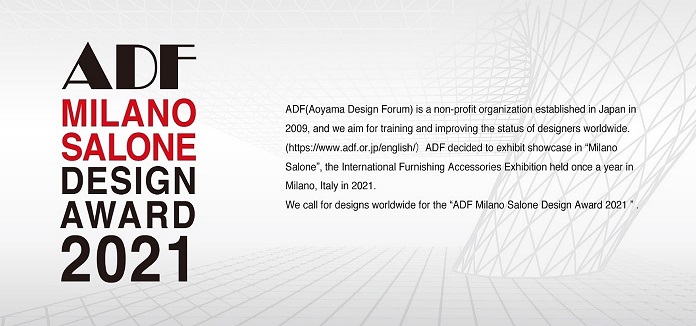
We interviewed Boey Wang and Alexander Schul, who won Outstanding Performance Awards at the "ADF Milano Salone Design Award 2021" sponsored by Aoyama Design Forum (ADF). We asked some questions such as their submitted works, their thoughts on art and prospects.
Boey Wang
1. Biography
Boey Wang is a Chinese designer based in the Netherlands. A recent graduate of Design Academy Eindhoven, he has a background of comics making and UX design and graphic design. His work aims to reframe conventional perceptions of reality. His design methodology encourages changing attitudes as an alternative solution. He believes that design can bring us back to the state where we were connected to the world without the rigid frameworks of thinking. Adopting a storytelling approach to value daily objects, we can reframe our relationship to these essential and overlooked aspects of life. Objects and people can be honest; it would create a culture ready to face unpredictable reality with open eyes and hearts. That°«s where his passion and hope in design lay.
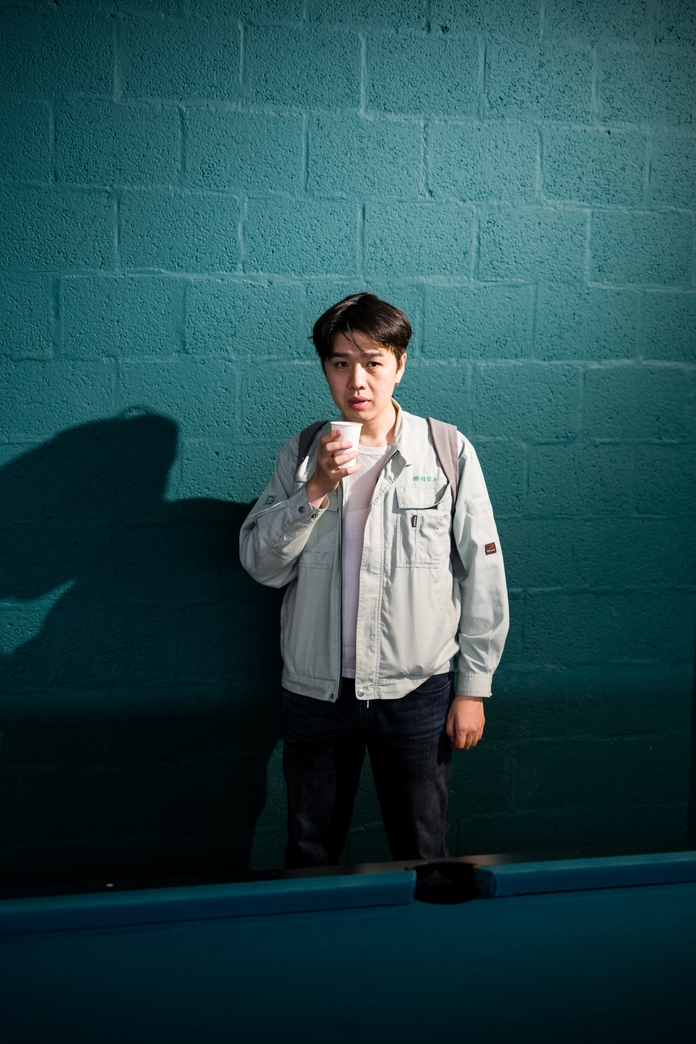
My profile photo by Boudewijn Bollmann
2. Your representative work
Our perceptions consist of rational perception and sensation perception. And these are the two directions of my design practice in changing our normal sense of understanding the world.
Direction 1, Rational Perceptual Design – °»Immeasurable Ranges°…
With the rapid changes brought on by pandemic, we are stuck between physical concerns over safety, the desire for social activities, and an unspeakable sense of anxiety and insecurity about the future. Our tools and systems, notably the units of measurement used as a basis for human creation, are designed to quantify and unify our reality in a static way. It is not only limited in responding to the uncertainty in a responsive way, but it also alienates us, ruling out subjectivity. Through creating flexible measuring tools (a stretchable ruler, a compass drawn with a brush, a 3D triangle ruler, and a stretchable bubble level), I question the rigid standards that we all adhere to, encouraging our elastic instincts to embrace the fluidity of the world. You are welcome to watch the movie online at https://vimeo.com/452894960 .
Direction 2, Sensational Perceptual Design - °»Haptics of Cooking°…
This series of blind kitchen tools are designed through the experience of touch. The goal of this project is not only to provide a sensational approach of inclusive design, but more importantly, to question the monopoly of vision in design by using its absence to highlight that "seeing" is not only visual. By orientating cooking towards touch, the project aims to change how design is perceived by people who have no vision impairments. Please refer to the video here: https://vimeo.com/459346711.
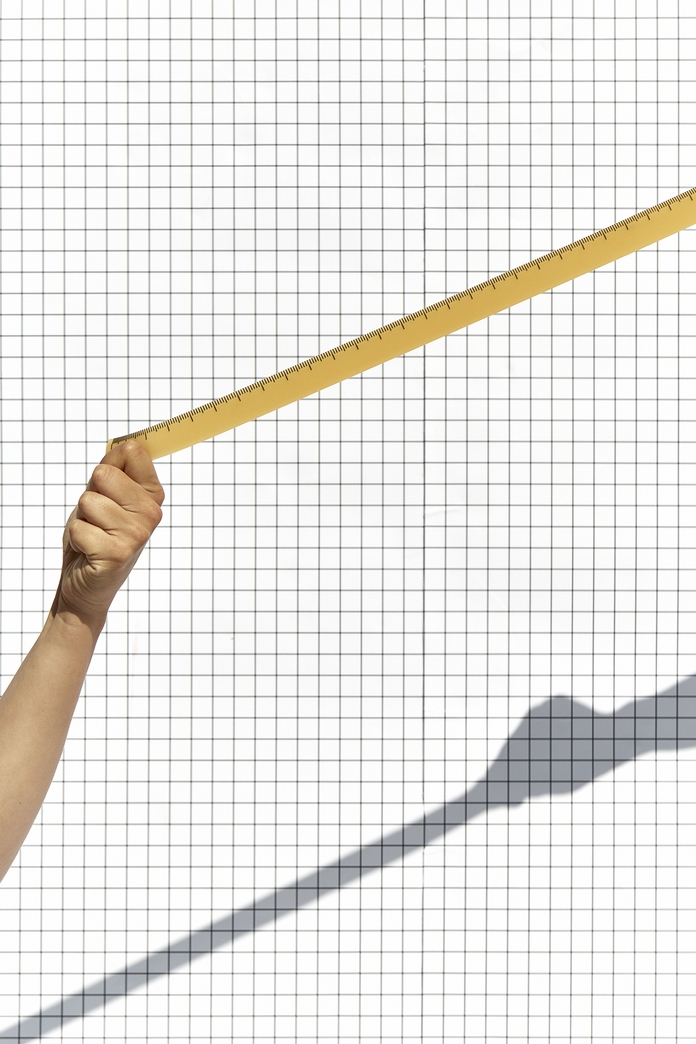
My project photo by Nicola Marnati
RE-STANDARISE / BOEY WANG
Immeasurable Ranges
3.How did you find ADF?
I found the open call be ADF by google.
4.What did you think about this award?
ADF award is a very professional and thoughtful award with in-depth knowledge and vision of design. It°«s a great acknowledgement of my idea and encouraging my exploration on the framework of our perception. With the award, it powered my passion to take more challenge in reflecting our position as a human in the world.
5.Your thought about this project
Since the beginning of the pandemic, I was very aware and concerned from the unpredictability and instability. The constant changes inspired me to research on the rigidity of our perception and our instinctive flexibility. The measurement unit are the symbolic tools of our projection to the world. Bky thinking from the basic of human creations, the project °»Immeasurable Range°… suggest an humorous yet logical solution of being a flexible and adoptive. The attitude behind the project is my anxiety and hope of human if ware able to embrace the future with openness, understanding, and responsibility.
6.About winning the this award
The theme of the award is very relevant and reflective about the pandemic situation now. It matched my vision of design should be in the future. It was my honer to win ADF award. It encourage my passion to develop my research further on this path.
7.How do you think about the future about design industry after COVID
Our material society is in the moment with full of challenges such as the increasing climate change, enlarging social differences, and threatening of disease and pollution. Instead of continuing the traditional pursuing of material richness, we are at the point of shifting about way of seeing and dealing with the instabilities. The need of design changes too. In my point of view, the design industry will not only responding to the new context phenomenally, but also will go deep into reflecting on our way of being and in filtering the beauty of life with a finer appreciating mesh more philosophically and theoretically. The challenges companies with opportunities. It will be a great timing to push the boundary of our understanding of wellbeing by relating to our relative position in the world.
8.Do you think the world can change by the power of Design?
Maybe the question can be phrased in this way °»Do you think our perceptional world can be changed by the power of design? Yes, I think so. We are not the king of the world, and the world could exist without us. What matter to a healthy relationship with the earth and society is our perception and understanding. I believe design has the power of balance a better perspective / scope and strategy in connecting us to the world.
9.What is your dream?
I wish my design could not only reflecting on our perceptions, most importantly I wish my design could illustrating hope practically and encouraging autonomy, responsibility, and empathy.
Alexander Schul
1. Biography
2019 – ongoing Master of Arts in product design at ECAL (Ecole cantonale d°«art de Lausanne)
2014-2018 Bachelor of Arts in object design at MAFAD ( Maastricht Academy of fine Arts and Design )
2017 internship at Studio David Lehmann
2013-2014 social work in a school in Kenya, Africa.
2013 Abitur ( University entrance qualification )
04.04.1994 born in Aachen, Germany
More details: http://alexanderschul.com/biography/
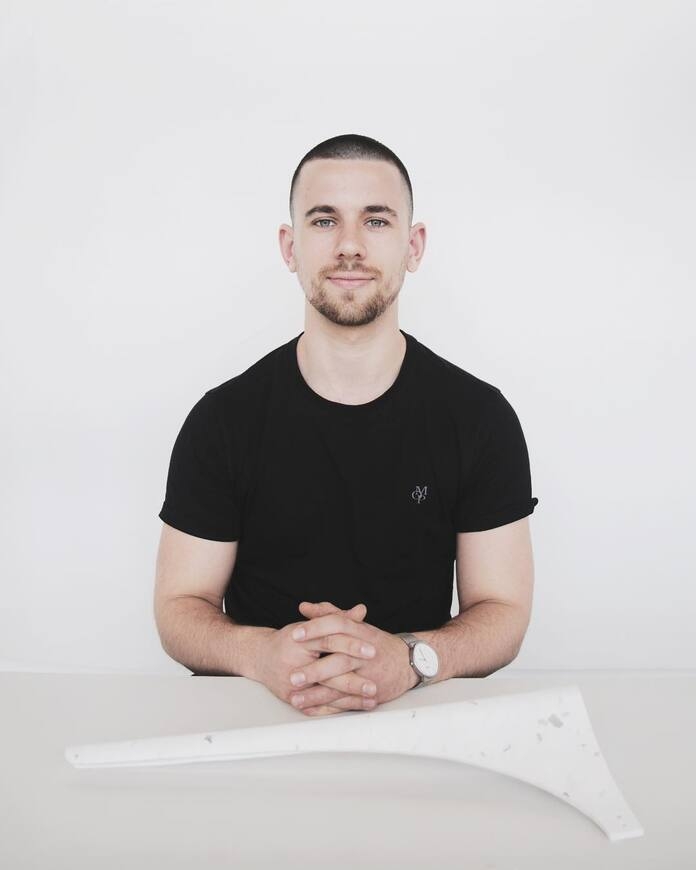
2. Your representative work
The list of the works: http://alexanderschul.com/
3. About your policy of design
My goal is to design products that stimulate people in a positive and sustainable manner. That means in my design I am equally considering the person, the industry/economy and the environment, always trying to create a win-win-win situation.
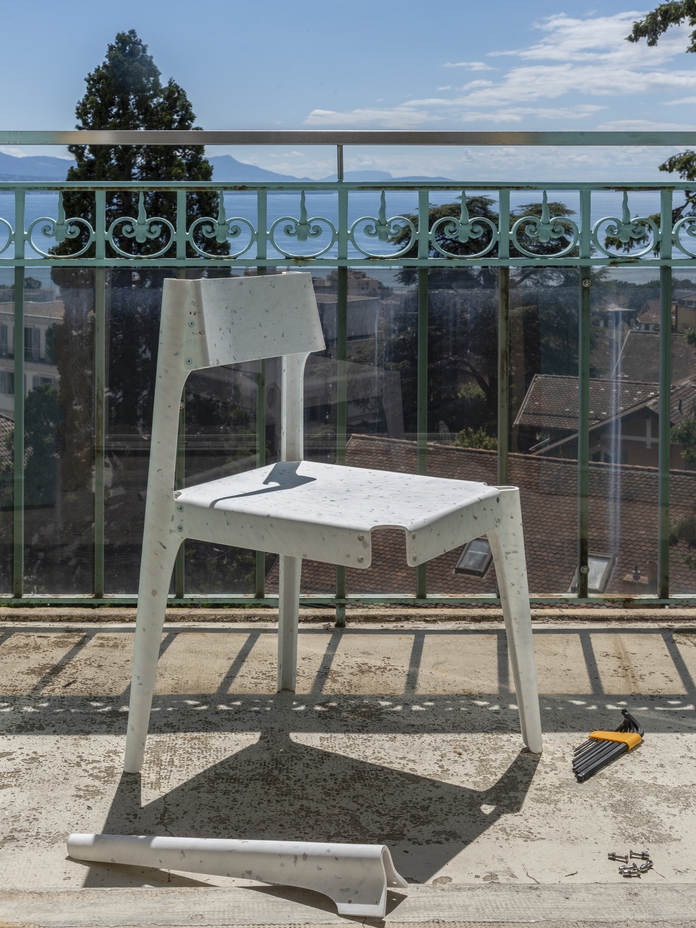
SUBSTANTIAL FURNITURE LINE / ALEXANDER SCHUL
4.What did you think about this award?
I first thought the award is purely in regards to sustainability. Looking at the topic "re-" I was thinking it is in relation to the 3r°≠s of sustainable material management: reuse, reduce and recycle. I am surprised about the diversity of approaches, not only coming from an environmental viewpoint.
5.Your thought about this project
I am happy it is so well received and that it is gaining support. I have plans to push this project further, hopefully to the point where it is in production.
6.About winning the this award
I°≠m happy and feel honored to have won the outstanding performance award. It°≠s a great opportunity to gain more attention around the project. The award helps me to gain more momentum in order to push it further.
7.How do you think about the future about design industry after COVID
I think it°≠s a great moment of change. Societies ideals, especially in regards to sustainability are largely not reflected by the industry. The de-acceleration of our life's and the economy gives us the possibility to implement our new ideals during the rebuild. The economy felt like a running train nobody wanted to interfere with. COVID forced it to slow down. That gives us the opportunity to jump off to reevaluate and establish a new way going forward. It°≠s a great moment of change and opportunity.
8.Do you think the world can change by the power of Design?
I absolutely think the world can change by the power of design. We designer play a large role in the use, reuse and distribution of resources. Therefore I believe we can play a big role in the process of solving the environmental crisis. This is just one example where we can improve life. Of course there are also many more topics where good design is relevant and can make a change.
9.What is your dream?
Making a living by doing something that positively changes our world.
Thank you very much for answering the questions, Boey and Alexander! We wish you all the best in the future. The next issue will be an interview with Takuto Ohta, who won the Best Performance Award. See you next week!
